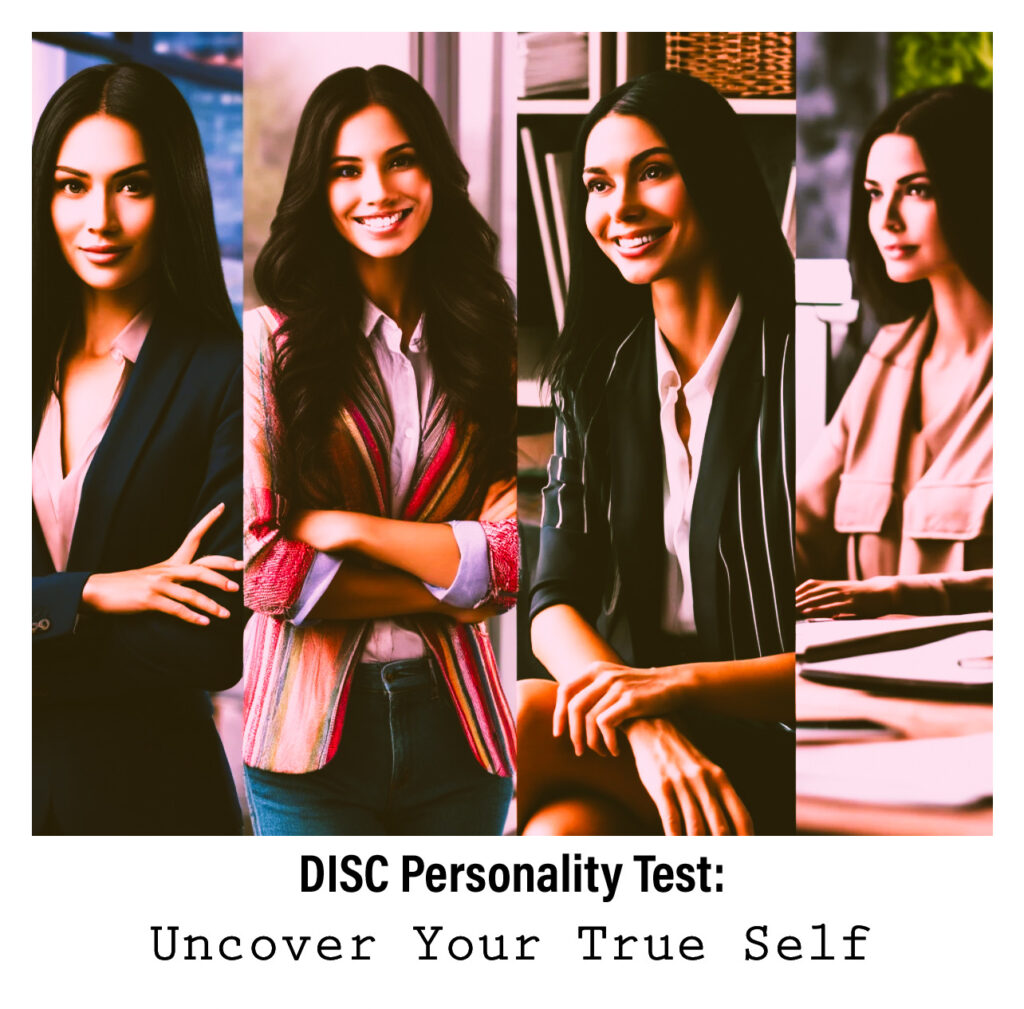
The DISC personality test is a psychological assessment tool designed to help individuals understand their behaviors, preferences, and communication styles. The test is based on the DISC model, which categorizes personalities into four main types: Dominance (D), Influence (I), Steadiness (S), and Conscientiousness (C). Each of these types reflects different ways of interacting with the world, solving problems, and relating to others.
Purpose of the Test
The primary purpose of the DISC personality test is to provide insights into your personal strengths, areas for growth, and how you typically approach various situations. By understanding your DISC type, you can improve your communication skills, work more effectively in teams, and make better decisions that align with your natural tendencies.
The Four DISC Personality Types
- Dominance (D):
- Traits: Assertive, direct, decisive, and results-oriented.
- Behavior: People with a dominant personality tend to take charge, make quick decisions, and focus on achieving their goals. They are often seen as strong leaders who thrive in competitive environments.
- Challenges: They may come across as overly assertive or impatient, and they might struggle with listening to others’ perspectives.
- Influence (I):
- Traits: Outgoing, enthusiastic, sociable, and persuasive.
- Behavior: Influential individuals are great at building relationships and motivating others. They enjoy being in social settings and are skilled at inspiring and engaging people.
- Challenges: They may be overly optimistic or easily distracted, and they might struggle with staying focused on tasks.
- Steadiness (S):
- Traits: Calm, patient, reliable, and supportive.
- Behavior: Those with a steady personality value stability, consistency, and harmony. They are dependable team players who prefer to work in a predictable environment.
- Challenges: They may be resistant to change, overly cautious, or struggle with making quick decisions.
- Conscientiousness (C):
- Traits: Analytical, detail-oriented, disciplined, and precise.
- Behavior: Conscientious individuals prioritize accuracy, quality, and thoroughness. They are often meticulous in their work and excel in tasks that require careful planning and attention to detail.
- Challenges: They may be overly critical or perfectionistic, and they might struggle with being flexible or adapting to unexpected changes.
Structure of the Test
The DISC personality test consists of 100 questions, each designed to assess how you typically behave in various situations. The questions cover a range of scenarios, including how you handle tasks, communicate with others, deal with stress, and approach decision-making.
Each question presents four possible responses, each corresponding to one of the DISC types:
A represents Dominance (D).
B represents Influence (I).
C represents Steadiness (S).
D represents Conscientiousness (C).
As you answer the questions, your responses will be tallied to determine which DISC type is most dominant in your personality.
Scoring and Interpretation
Once you’ve completed the test, your answers are scored to identify your dominant DISC type. The type with the highest score represents your primary personality trait. However, it’s important to note that everyone has a mix of all four DISC types in varying degrees. The test reveals which type is most prominent, but it does not mean you lack traits from the other categories.
The results will provide you with a description of your dominant DISC type, offering insights into your behavior, strengths, and potential areas for development. Understanding your DISC profile can help you in personal growth, improving relationships, and achieving greater success in both personal and professional settings.
Applications of the DISC Test
Personal Development: Gain self-awareness and learn how to leverage your strengths while working on areas of improvement.
Career Planning: Discover the types of roles and environments where you’re likely to thrive based on your DISC profile.
Team Building: Improve team dynamics by understanding the diverse personality types within a group and how to effectively collaborate.
Conflict Resolution: Use insights from the DISC model to navigate and resolve conflicts more effectively by understanding others’ perspectives.
In summary, the DISC personality test is a powerful tool for gaining deeper insights into your behavior and how you interact with the world. By understanding your DISC type, you can enhance your communication skills, build stronger relationships, and achieve greater success in all areas of life.
